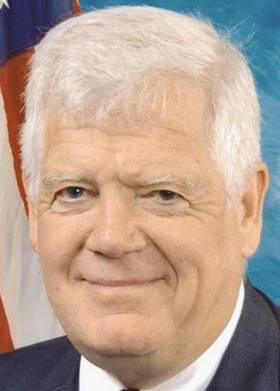forum
library
tutorial
contact

Rep. Jim McDermott, D-Wash.,
Salmon Response
by Idaho Statesman Questionnaire
The Idaho Statesman, August 7, 2005
|
the film forum library tutorial contact |

|
Rep. Jim McDermott, D-Wash.,
by Idaho Statesman Questionnaire
|
 Rep. Jim McDermott, D-Wash., did not answer The Statesman questionnaire, but instead sent this statement:
Rep. Jim McDermott, D-Wash., did not answer The Statesman questionnaire, but instead sent this statement:
A U.S. District Court judge personally took charge of the Columbia River system after ruling that the latest Bush administration proposal to recover endangered salmon runs is illegal. In other words, the judge isn't buying what the administration has tried selling repeatedly.
That's no surprise after a fair-minded read, but it begs the question: When do we stop pleading and start planning? Planning is what's necessary and it is an approach that I've strongly advocated for years in my Salmon Planning Act that remains dammed behind Republican legislative spill gates in the House of Representatives. It's past time to open the spillway.
We need a credible, serious, long-range salmon recovery plan based on science, economic analysis and community dialogue, not special interests producing banners and monologues. This is the only way we can ever hope to achieve results in the best interests of salmon, agriculture and the rest of the Northwest economy. A plan is the only way to restore credibility, something as precious as salmon. Here's one example.
The most recent federal proposal unbelievably tried to neuter the Endangered Species Act by postulating that hydroelectric dams on the Columbia and Snake Rivers are natural parts of the landscape, perhaps the work of the Lord on the eighth day after a little rest. The plain truth is the dams kill as many as 90 percent of some salmon and steelhead runs. By pretending otherwise, the administration wanted to channel money into largely unproven, federally funded projects that scientists say will not reverse current rates of decline. In other words, the administration continues to plead for a no-plan alternative, using far-fetched arguments short on science and long on fiction.
And that's not all. The Fish Passage Center, a small group of scientists operating on a miniscule $1.3 million annual budget, produces accurate, comprehensive, scientific information widely recognized as clean data, devoid of spin and special interests. This unassailable data has helped prove the ineffectiveness of the administration's approach, like spending $600 million this year that returned only one-third of the spring Chinook they projected. FPC's credibility finally got noticed. Idaho Sen. Larry Craig, R, recently attempted to zero out FPC's tiny budget. A spokesman for the senator called it a "shot across the bow." In reality, it's a spent 12-gauge shell in the senator's apparent extinction plan for FPC; that isn't going to get us, the region, or salmon, anywhere.
A recent economic impact study in Idaho found that restoring salmon runs would bring more than $500 million annually to Idaho, through fishing and tourism. Across the region, healthy salmon runs could mean over $5 billion a year. People need to understand that this is not simply an environmental issue. Closed fisheries, like we had this spring, cost tribal, sport, and commercial fishermen, and the businesses and local communities that support them, million of dollars and thousands of jobs. Some people get it.
Over a thousand businesses - large and small - recently signed a letter demanding action by Congress and the president to restore salmon runs to healthy, historic levels. They are right, and the first step to achieving that goal is a credible, long-range plan that involves everyone. That's what my Salmon Planning Act does. Had it been passed when I first introduced it, we would be years closer to common ground. Slogans won't produce a solution and banners won't hold back the water.
Today a judge runs the Northwest hydro system because there is no credible plan from this administration, but it's not the first time. For more than a decade now, the federal government has resisted seriously studying all the options, preferring to spend billions of taxpayer dollars on one failed recovery scheme after another. No one including me has ever said 'breach the four Lower Snake River dams.' But neither does anyone seriously believe we can develop a long-range plan without looking at all the options, the economic impacts, and the choices before us.
Our national treasure, Columbia and Snake River salmon and steelhead, are slowly drifting toward extinction: Is this not something we can all agree will forever harm the Northwest ecosystem, businesses and communities? Yes, it is.
The Salmon Planning Act that I introduced, H.R. 1615, which has attracted significant bipartisan support, is critical to the process and to our future. If we don't act seriously, responsibly - and soon - someone else will, and we may not like the results. Urge your federal representatives in the House and Senate to plan for salmon recovery, not plead for environmental and economic voodoo.
learn more on topics covered in the film
see the video
read the script
learn the songs
discussion forum
